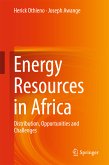This book reviews the main energy sources, production problems and energy perspectives in Germany and Mexico. It surveys the status of traditional and alternative energy sources, including fossil fuels, nuclear, hydraulic, eolic, solar, and hydrogen cells. The book emphasizes the search for answers to such questions as What are the main problems of industries based on fossil fuels, and What is the present status of hydraulic and nuclear energy?
Dieser Download kann aus rechtlichen Gründen nur mit Rechnungsadresse in A, B, BG, CY, CZ, D, DK, EW, E, FIN, F, GR, HR, H, IRL, I, LT, L, LR, M, NL, PL, P, R, S, SLO, SK ausgeliefert werden.
Hinweis: Dieser Artikel kann nur an eine deutsche Lieferadresse ausgeliefert werden.









